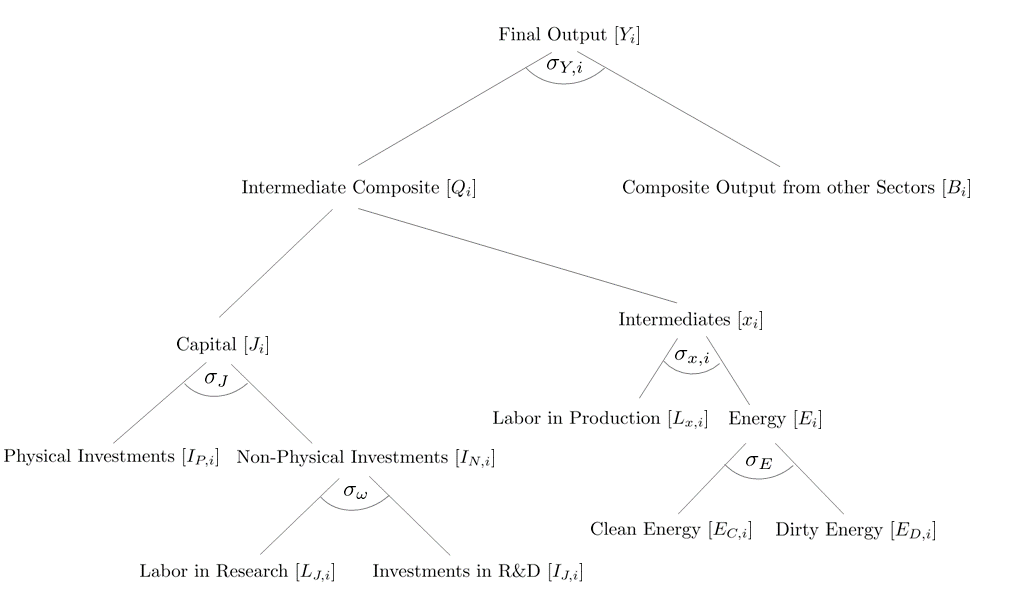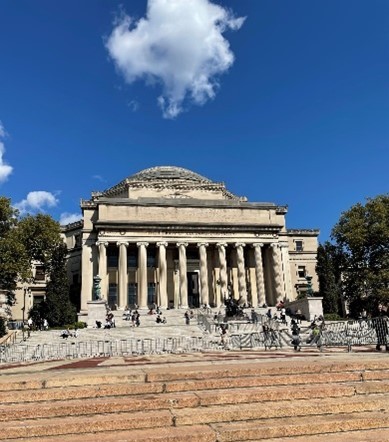Hi, I'mDr. sc. ETH Matthias Leuthard.
A
Passionate macroeconomist with a curious mind who enjoys solving complex and challenging economic problems. I am on the 2025-2026 academic job market.
About
I am on the 2025-2026 academic job market (Curriculum Vitae, Job Market Paper, Research Statement).
I am a passionate macroeconomist working on environmental and climate economics, innovation, tipping points, and economic growth. I recently completed my Ph.D. in Economics at ETH Zurich and currently work as a modeling architect in applied macroeconomic research and consulting at BAK Economics. Driven by my passion for (endogenous) growth theory, I am fascinated by the fundamental questions of what drives economic growth and whether it can be sustained under (increasingly) binding environmental constraints. My research combines theoretical modelling, empirical methods and quantitative tools to study the interactions betweeen climate change, climate policy and economic growth. I have a strong background in combining economic theory and CGE models (e.g. CITE model), with expertise in assessing the economic impacts of environmental and climate policies. My aim is to advance sustainable growth by designing climate and environmental policies that are both economically efficient and socially equitable. My research has been published in leading economic (field) journals. Thanks to my minor in data science from UZH, I am also able to apply econometric techniques and tools to gain data-driven insights and support evidence-based decisions.
Journal Publications (Peer-Reviewed):
Leuthard M. (2025): Equity & Efficiency of Carbon Tax Policies in Switzerland with Endogenous Energy Substitution, Swiss Journal of Economics and Statistics, 161 (1), 12. (Job Market Paper)
Bretschger, L., Leuthard, M. and Miftakhova, A. (2025): Boosting Sluggish Climate Policy: Endogenous Substitution, Learning & Energy Efficiency Improvements, Environmental and Resource Economics, 1-43.
Bretschger, L. & Leuthard, M. (2024): Die Bedeutung von Kipppunkten für eine nachhaltige Entwicklung. Perspektiven der Wirtschaftspolitik, 24 (4), 427-44.Papers Under Review:
Bretschger, L., Komarov, E. and Leuthard, M. (2024): Overcoming the Carbon Trap in the Global South.
Leuthard, M. (2025): Climate-induced poverty traps: A new theoretical approach with a Northern pollution shifter.
Working Papers:
Brouwer, R., Leuthard, M. and Logar, I. (2025): Valuing and Mapping the Ecosystem Services provided by Water Resources in Switzerland
Projects
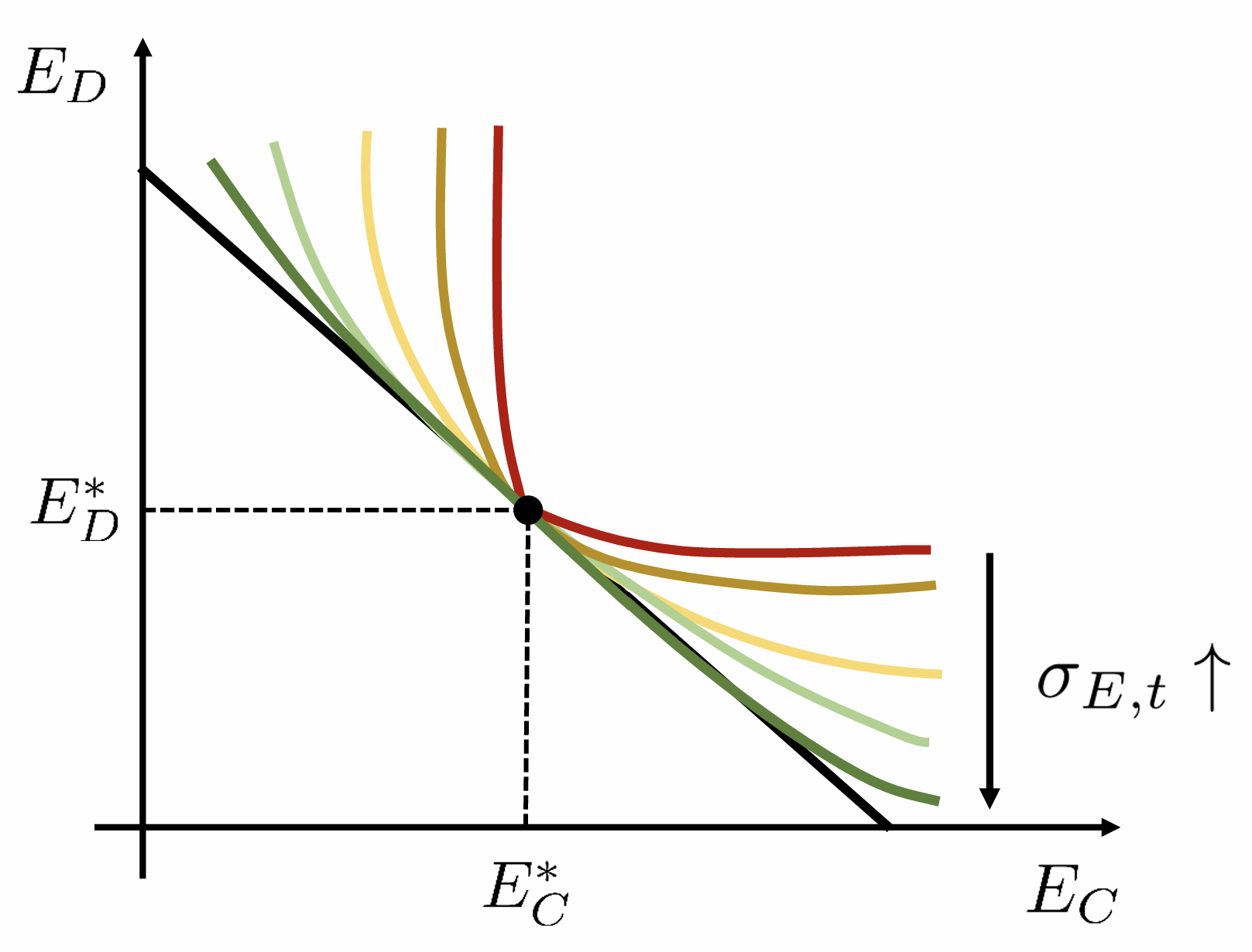
(Job market paper)
The costs and speed of the energy transition are closely linked to the elasticity of substitution between fossil fuels and clean energy sources. Yet, despite its central role, this parameter has been treated as exogenous and constant in numerical studies of climate policy. Drawing on recent empirical evidence, this paper incorporates an endogenous elasticity of substitution that flexibly interacts with the relative share of clean energy in the economy into the CITE model—a dynamic CGE model of Switzerland featuring endogenous growth and heterogeneous households. Using this refined approach, I compare the equity and efficiency implications of carbon taxation under endogenous versus exogenous energy substitution and explore al- ternative revenue recycling schemes, including lump-sum transfers to households and output subsidies for clean energy. Although beneficial to the economy as a whole, the dynamic feedback effect arising from endogenous energy substitution has distributional impacts favoring high-income households, challenging its pre- sumed progressivity. Redistributing carbon tax revenues as output subsidies for clean energy is most efficient in terms of aggregate welfare under low to moderate climate targets. However, due to the absence of direct household transfers, this policy option leads to the most regressive outcome highlighting an equity–efficiency trade-off in the design of tax-based climate policy.
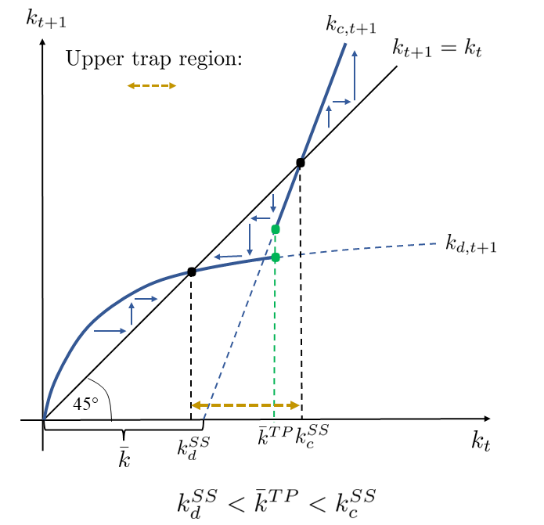
(Co-authors: Lucas Bretschger and Evgenij Komarov)
We construct an overlapping generations model for the Global South in which the choice between dirty and clean technology hinges on the economy’s capital stock, susceptible to climate-induced depreciation. The process of capital accumulation contributes to environmental emissions, yet its intensity can be mitigated through a shift to cleaner production. The tipping point of technological transition is endogenously determined, leading to a diverse range of potential long-term outcomes shaped by capital endowment, pollution intensity, climate vulnerability, and clean factor productivity. Our analysis reveals the possibility of the economy converging into a “carbon trap”, characterized by a sustained equilibrium marked by elevated pollution and diminished income, despite the feasibility of pursuing green growth. Additionally, we present optimal policy measures and simulations that highlight the temporal disparities between the socially optimal timing for transitioning to green technology and the timing dictated by market forces. Finally, to account for the high upfront costs of starting clean production, we extend the model by including a non-convexity in the production structure of the clean technology.
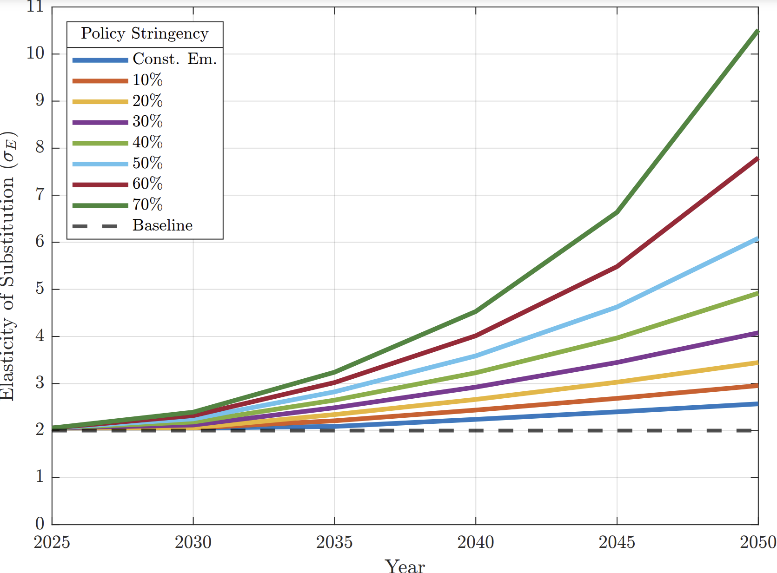
(Co-authors: Lucas Bretschger and Alena Miftakhova)
There is widespread concern that climate policy is moving too slowly and that decarbonization is coming too late for effective climate protection. We analyze three different empirically relevant effects that emerge endogenously during decarbonization and amplify current policies: growing substitutability of dirty with clean energy inputs, learning and scale effects in renewable energies, and efficiency improvements in the application of energy. We employ the CITE simulation model, a dynamic computable general equilibrium (CGE) model with endogenous growth, to represent the macroeconomic framework of climate policy, calibrate the impacts, and obtain quantitative results. We use data for the Swiss economy and find that all three effects significantly accelerate decarbonization and markely reduce the costs of climate policy, with increasing energy substitutability having the strongest impact. Targeted policies such as subsidies to clean energy and R&D may amplify these effects and thereby speed up the transition towards a carbon-free economy.

(Co-author: Lucas Bretschger)
Solving major sustainability problems such as climate change and the loss of biodiversity requires overcoming a fundamental dilemma: on the one hand, central decisions on the realignment of the economy and society should be quick and far-reaching, on the other hand, actual decision-makers are strongly oriented towards established structures, which entail great inertia and path dependencies. As a result, expectations and reality are often still far apart in sustainability policy. Tipping processes can play a decisive role in closing this gap and generally describe a non-linear and self-sustaining dynamic which can be triggered when a critical threshold (a tipping point) is crossed. The targeted promotion of crossing important thresholds can thus become a successful strategy for sustainability policy. In this paper, we highlight the importance and limitations of tipping dynamics in promoting sustainability. We develop an integrative formal approach to illustrate the characteristics of tipping dynamics in nature, technology, politics, society and the economy, and deepen the discussion using two case studies from economic history. Finally, we discuss implications for research, policy and institutions.
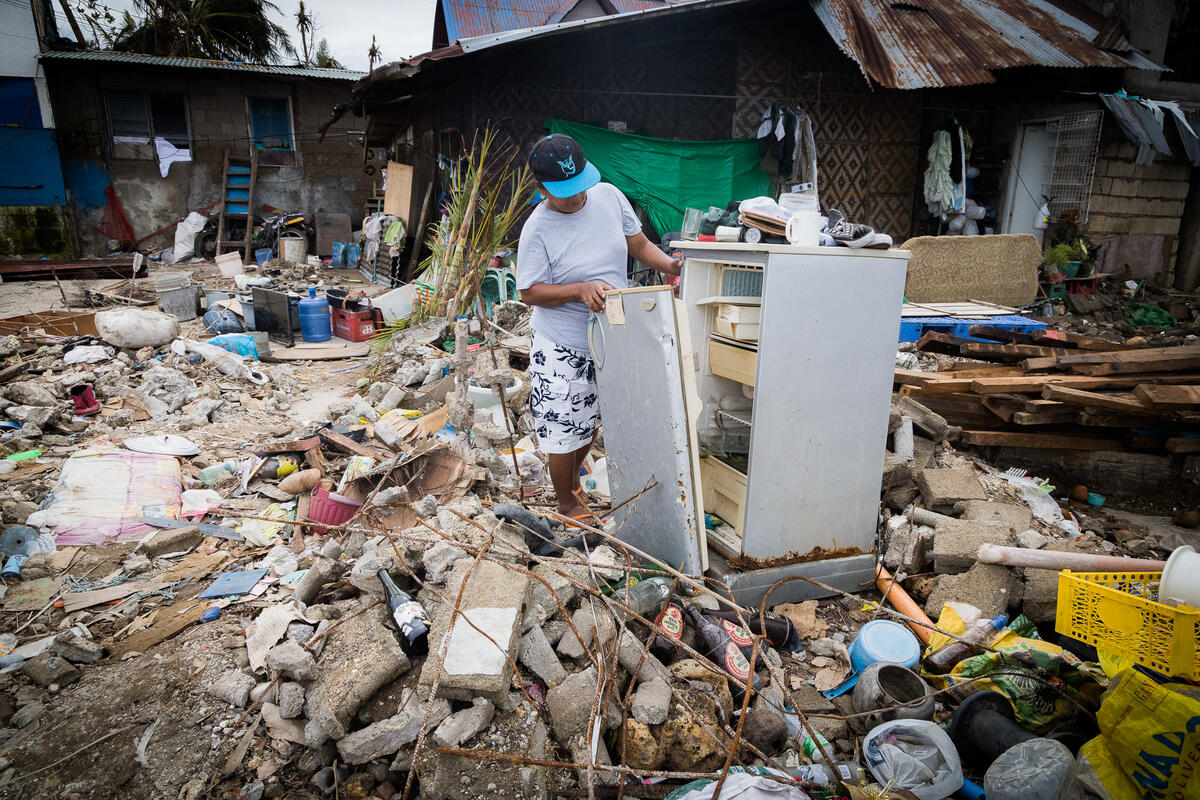
(Single-authored)
This paper develops a tractable North-South framework with overlapping gen- erations and endogenous growth dynamics to study poverty traps in the light of climate change. Global pollution is a negative externality of capital accumulation in both world regions, and climate change causes damages to the stock of physical capital in the more vulnerable South. Non-linearities in global pollution dynamics, in the impact and abatement functions and in the production structure give rise to critical threshold effects, possibly leading to a long-run equilibrium with persistent poverty. Climate policy in the North that aims to reduce global emissions lowers the risk of the South falling into a climate-poverty trap by mitigating climate-induced capital depreciation. This transmission channel highlights the critical role of proac- tive climate policy in the North in preventing climate-induced poverty traps in the capital-poor South.

(Co-authors: Roy Brouwer and Ivana Logar)
The main objective of this study is to estimate the total economic value of the main ecosystem services provided by surface and groundwater resources in Switzerland and to assess how these economic values are spatially distributed across the country. Data on both the market and non-market values associated with the provision of the most important water ecosystem services are collected at different spatial scales, ranging from national to municipality levels. The ecosystem services covered in this study include hydropower production, drinking water supply, irrigation, recreational fishing, and environmental flows. The collected data on ecosystem service provision and economic values were collated in GIS to create value maps, which illustrate the geographical distribution of the economic values that these various water ecosystem services generate. The estimated total economic value corresponds to a relatively small share of the Swiss annual Gross Domestic Product.
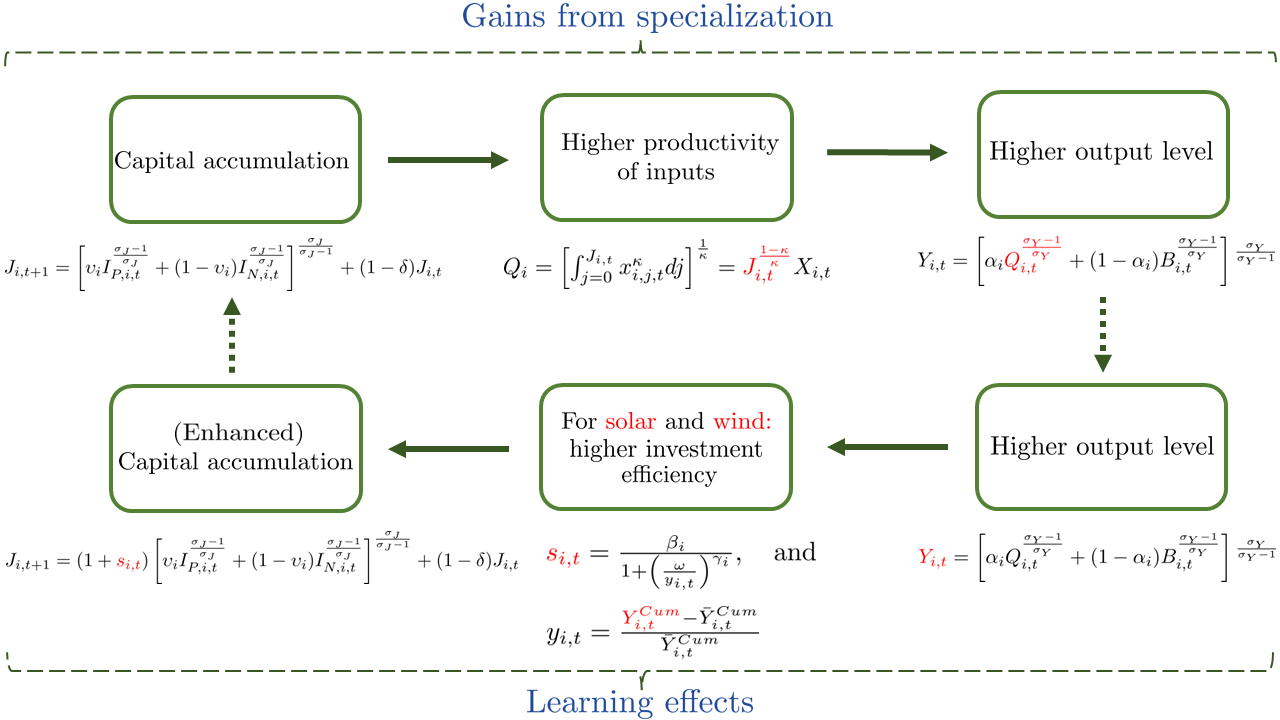
(Co-authors: Lucas Bretschger and Alena Miftakhova)
This project, funded by the Swiss Federal Office of Energy (SFOE), examined a range of market-based and technology-focused policy instruments to identify an optimal policy mix for decarbonizing the Swiss economy. In addition, we analyzed the role of innovation in achieving ambitious climate targets.
Research Blogs

(Co-author: Lucas Bretschger)
Tackling climate change requires accelerating decarbonization well beyond current trajectories. This research blog explores how tipping points—critical thresholds that trigger non-linear, self-sustaining dynamics—can help speed up the transition to a low-carbon economy. Drawing on theoretical insights and historical lessons, we examine both the potential and the limitations of tipping dynamics in advancing the low-carbon transition across technology, policy, and society. To illustrate these dynamics, we present a historical example of tipping: Switzerland’s rapid electrification in the early 20th century. While tipping points offer powerful leverage for climate action, we also underscore the challenges of steering complex systems toward deep decarbonization.

(Co-authors: Lucas Bretschger and Alena Miftakhova)
This research blog discusses three empirically grounded mechanisms that play a critical role in decarbonization but are often overlooked in macroeconomic analyses of climate policy: the growing capacity of renewables to substitute for fossil energy, experience-based learning in renewable energy production, and increasing efficiency of energy use in the economy. We incorporate these mechanisms into a multi-sectoral model of the Swiss economy (the CITE model) to assess their importance for achieving Switzerland’s Net-Zero target by 2050. Our findings show that leveraging these dynamics is essential for designing effective climate policy.
Skills
Programming

advanced
 MATLAB
MATLAB
basic
 advanced
advanced
 Mathematica
Mathematica
Applications

advanced
 MS Office
MS Office
advanced
Education
Zurich, Switzerland
Degree: Doctor of Science (Dr. sc. ETH Zurich)
Dissertation: Climate Policy, Economic Dynamics and Technological Change in the Low-Carbon Transition
Zurich, Switzerland
Degree: Master of Arts in Economics (Minor: Data Science)
Mastery thesis: Technology Tipping: Accelerating the Transition to a Low-Carbon Economy
Degree: Bachelor of Arts in Economics
Bachelor thesis: Energy Strategy 2050: An Economic Evaluation
CITE MODEL
The CITE (Computable Induced Technical Change and Energy) model, originally developed by Bretschger et al. (2011), is a dynamic, multi-sectoral CGE model with endogenous growth suitable for energy and climate policy evaluation. In collaboration with my colleague Dr. Alena Miftakhova (PSI), I have extended the CITE model along several dimensions. Specifically, we introduced three dynamic, empirically grounded mechanisms that prove important for decarbonization but often go unnoticed in macroeconomic analyses of climate policy: the improving potential of renewables to substitute for fossil energy, experience-based learning in renewable energies, and innovation-driven improvements in energy efficiency. In addition, the model features a detailed power generation module that encompasses a range of technologies and captures endogenous technological change through learning and gains from specialization. For non-technical summaries of the CITE model, we refer to:
> SimLab > Summary > Zusammenfassung